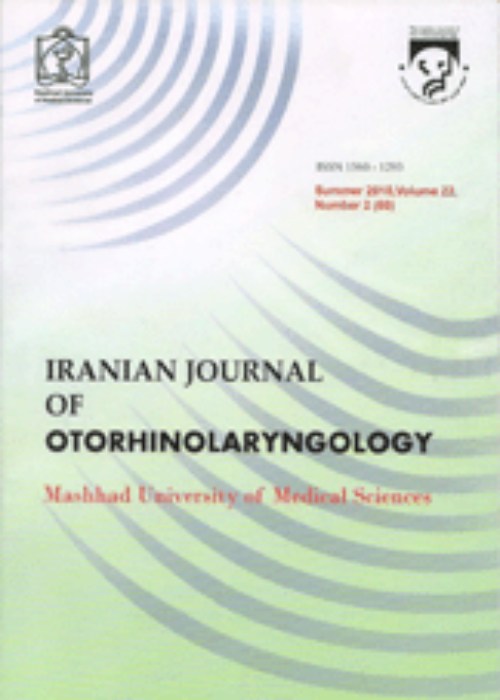Deep Neck Space Infections: A Study of 76 Cases
Author(s):
Abstract:
Introduction
Deep neck space infections (DNSI) are serious diseases that involve several spaces in the neck. The common primary sources of DNSI are dental infections, tonsillar and salivary gland infections, malignancies, and foreign bodies. With widespread use of antibiotics, the prevalence of DNSI has been reduced. Common complications of DNSI include airway obstruction, jugular vein thrombosis, and sepsis. Treatment principally comprises airway management, antibiotic therapy, and surgical intervention. This study was conducted to investigate the age and sex distribution of patients, symptoms, presentation, sites involved, bacteriology, and management and complications of DNSI. Materials And Methods
This retrospective study was performed from October 2010 to January 2013, and included 76 patients with DNSI. Patients of all age groups and gender were included. All parameters including age, gender, co-morbidities, presentation, site, bacteriology, complications, and required interventions were studied. Results
In our study, the majority of patients were in the 31–50-year age group. Males accounted for 55.26% of the sample and females for 44.74%, with a male:female ratio of 1.23. Most of the patients were from a rural background. Diabetes was found as a co-morbid condition in 10.52% cases. Neck pain was the most common symptom, identified in 89.47% cases. The most common etiological factor was odontogenic infection (34.21%), followed by tonsillar and pharyngeal infection (27.63%). The most common presentation was Ludwig’s angina (28.94%), followed by peritonsillar abscess and submandibular abscess. In 50% of cases, Streptococcus and Staphylococcus were found in the culture. Surgical intervention was carried out in 89.47% cases. Emergency tracheotomy was required in 5.26% cases. Conclusion
DNSI can be life-threatening in diabetic patients, the immunocompromised, and elderly patients, and special attention should therefore be given to these groups. Early diagnosis and treatment is essential to prevent complications. All patients must be treated initially with intravenous antibiotics, with treatment subsequently updated based on a culture and sensitivity report. Due to poor oral hygiene, lack of nutrition, smoking and chewing of beetle nut and tobacco, odontogenic infections are the most common cause of DNSI. Thus, DNSI could be prevented by making the population aware of dental and oral hygiene and offering regular check-ups for dental infections.Keywords:
Language:
English
Published:
Iranian Journal of Otorhinolaryngology, Volume:27 Issue: 4, Jul 2015
Pages:
293 to 299
magiran.com/p1421447
دانلود و مطالعه متن این مقاله با یکی از روشهای زیر امکان پذیر است:
اشتراک شخصی
با عضویت و پرداخت آنلاین حق اشتراک یکساله به مبلغ 1,390,000ريال میتوانید 70 عنوان مطلب دانلود کنید!
اشتراک سازمانی
به کتابخانه دانشگاه یا محل کار خود پیشنهاد کنید تا اشتراک سازمانی این پایگاه را برای دسترسی نامحدود همه کاربران به متن مطالب تهیه نمایند!
توجه!
- حق عضویت دریافتی صرف حمایت از نشریات عضو و نگهداری، تکمیل و توسعه مگیران میشود.
- پرداخت حق اشتراک و دانلود مقالات اجازه بازنشر آن در سایر رسانههای چاپی و دیجیتال را به کاربر نمیدهد.
In order to view content subscription is required
Personal subscription
Subscribe magiran.com for 70 € euros via PayPal and download 70 articles during a year.
Organization subscription
Please contact us to subscribe your university or library for unlimited access!


